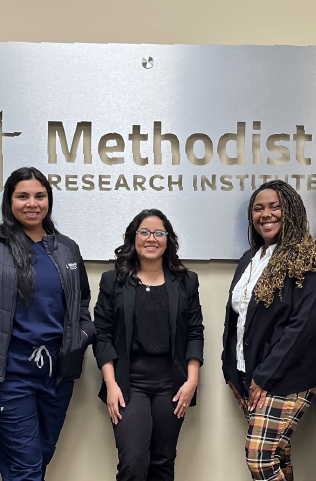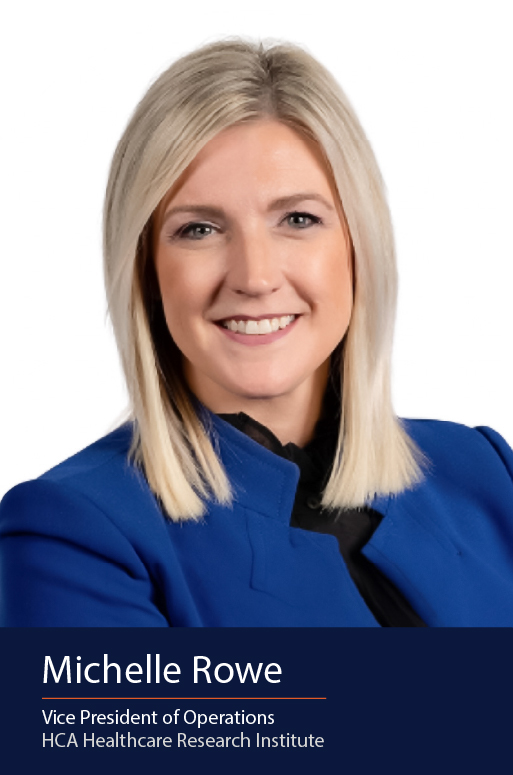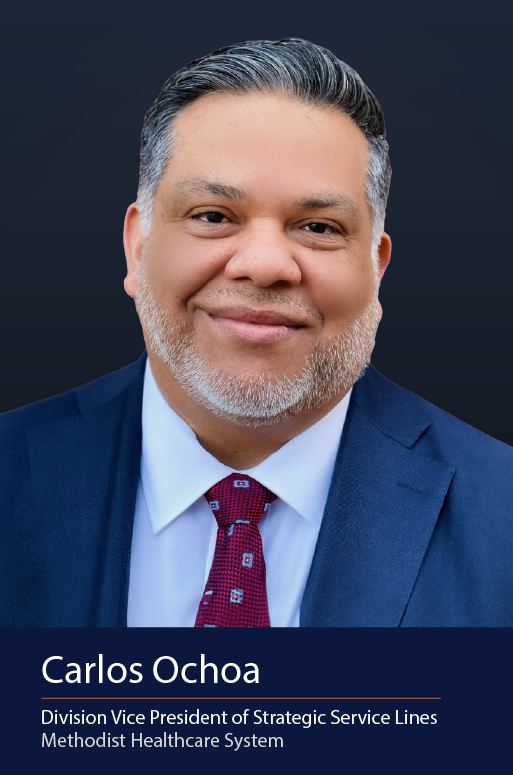Clinical research is an integral part of delivering best-in-class patient care.


Behind every successful patient story is a team of research professionals tirelessly reviewing data, testing, retesting and studying every detail of a clinical trial before a treatment or therapy becomes a standard of care.
Just as research is an integral part of delivering care, HCA Healthcare’s commitment to clinical research is essential to fulfilling our mission: “Above all else, we are committed to the care and improvement of human life.”

The HCA Healthcare Research Institute, a multispecialty clinical research arm of the organization, exists to unlock insights into real-world data and to conduct clinical studies that lead to breakthroughs in science, medicine and care. Teams of clinicians at 36 sites in the U.S. are advancing care through innovative research across nine therapeutic areas: cardiac and vascular, solid organ transplant, neuroscience, women’s and children’s, pulmonary and thoracic, oncology, musculoskeletal, behavioral health and robotics.
One research program in particular illustrates how quickly success can happen in the context of the larger research agenda. HCA Healthcare’s research site at Methodist Healthcare System in San Antonio, Texas has seen rapid growth.
“They have support from the physicians and leadership at the facility and division, and because of that, it is really a thriving program that I truly believe is a model for others,” says Michelle Rowe, vice president of operations, HCA Healthcare Research Institute. “They have a governance structure where physicians are engaged and contributing to the long-term strategy and vision for research in their division.”
“Methodist Healthcare and HCA Healthcare Research Institute have created a successful research program to better serve our community and is critical to the future of patient care.— Fernando Triana, MD, physician director cardiac vascular pulmonary &
thoracic service line and physician in chief at Methodist Hospital
Fernando Triana, MD, physician director cardiac vascular pulmonary & thoracic service line and physician in chief at Methodist Hospital, says research is one of the foundational elements enabling us to help shape the medical care we provided to patients.
“Our research investment affords us access to new medications, treatments, and cutting-edge technology that allows our physicians to deliver an enhanced patient experience,” Dr. Triana says. “Methodist Healthcare and HCA Healthcare Research Institute have created a successful research program to better serve our community and is critical to the future of patient care. It is that community commitment that sets Methodist Healthcare apart, making us a true partner to both the medical community and the patients who trust us with their care.”

How it started and how it’s going
Paige Castaneda, division director of the Research Institute at Methodist Healthcare System in San Antonio, says that, when she first arrived three years ago, their efforts involved just one hospital, a coordinator and a handful of trials. Today, the Methodist Research Institute includes four hospitals and a team of 10 people. It covers more than 70 trials and includes a strong outcomes-based research component, allowing them to publish in up to 15 publications annually. The institute has been involved in studies both nationally and worldwide.
“In less than three years, we have created a successful research program. Our program aims to be nationally recognized for hospital and clinic-based research by contributing to the science of medicine and providing cutting-edge care for the communities we serve,” she says.
They started to see success after only a few trials and successful enrollments. A turning point came when they started gaining primary authorship opportunities. Now the institute occupies its own space, and research has expanded beyond cardiovascular and into neurosciences.
Paige says physicians there are eager to participate in research.
The HCA Healthcare Research Institute provides guidance, combined with buy-in from all parties — administrative and physician leadership — paving the way for the Methodist Research Institute to achieve success.
“Everybody really working collaboratively and being on the same page has helped grow the program a lot,” she says.

The impact of research
There’s a growing awareness of and appreciation for clinical research, particularly since the pandemic. Research offers numerous benefits, including directly impacting patient care. It also meets some accreditation and certification requirements and can be a factor in recruiting and retaining physicians.
“Clinical research allows our service line clinicians to maintain innovative treatments and participate in the development of clinical guidelines and methodologies that impact the care of our patients and community,” says Carlos Ochoa, division vice president of strategic service lines for Methodist Healthcare System.
Research also creates increased access to better care across communities.
“The goal is to have research where patients can benefit from it,” says Paige. “There’s a large population of patients [who] never have access to a research trial. There’s a lot of research that does not include women or minorities. The larger the footprint we have, the more potential we’ll have for including those populations.”
For example, there’s a lot of untapped data involving women and heart disease. Research conducted today can shape patient outcomes tomorrow. And as Paige explains, the real research heroes are the patients because it couldn’t happen without their participation.
“For the patients to agree and come along, that’s a big sign of trust,” she says. “And when we have a great result and they feel better and get their life back, it makes all the difference.”
For the patient, research can lead to a treatment that allows them to live more freely. Such was the case for one patient who was able to return to his hometown in Mexico after undergoing a heart procedure. He had been unable to travel very far because of years of deteriorating health. But because of a clinical research trial, he was able to receive treatment that allowed him the freedom to travel for longer periods of time.
Research drives evidence-based guidelines that become standard practice across clinical specialties, and many colleagues are involved in research whether they realize it or not. Any care that patients receive is a direct result of research.
“Anytime they interface with any health care provider, research has impacted the care they’re receiving. Everything that we do in research impacts the care that patients are getting.”


